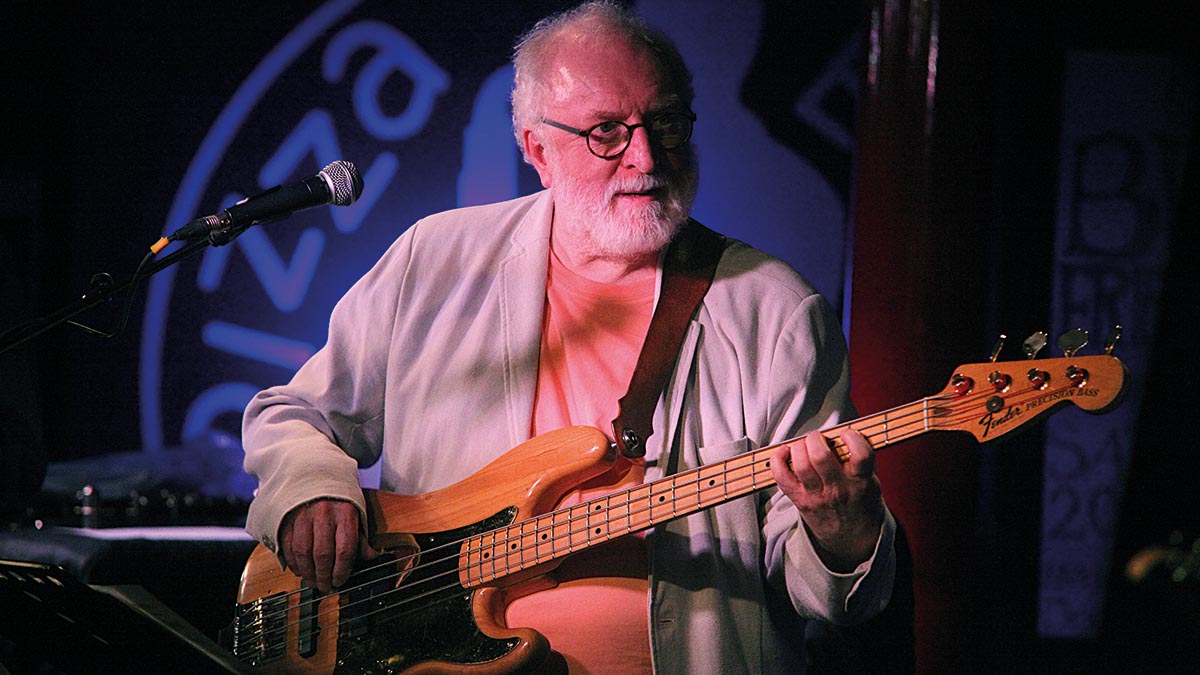
Mo Foster – a celebrated session bassist who worked with some of the most influential figures in popular music – died July 3, aged 78.
Guitarist Ray Russell, Foster’s close friend and longstanding collaborator, confirmed the news on social media, sharing, “There will never be another Mo – his values and integrity were emblazoned on anything he wrote and played and composed. An empty chair, a lead waiting to be attached to the bass, and an amp that will remain silent, but he will remain long after the song has ended.”
In a decades-long career, Foster provided low-end support with artists as diverse as Eric Clapton and The London Symphony Orchestra.
In the '60s, he formed progressive jazz/rock group called Affinity, which was managed by the late Ronnie Scott before forging a live career alongside artists such as Jeff Beck, Phil Collins, Joan Armatrading, Gil Evans, Gary Moore, Van Morrison with Dr John, Eric Clapton, Sting, Dusty Springfield, George Martin, Hank Marvin, Roger Glover, Geno Washington, The Royal Philharmonic Orchestra, and The London Symphony Orchestra.
As a studio musician, Foster played on over 400 albums and singles, including recordings with Gerry Rafferty, Brian May, Ringo Starr, Annifred Lyngstad of ABBA, Cher, Peter Green, Meatloaf, Andrew Lloyd-Webber, Leo Sayer and Kenny Rogers. Mo was also part of the rhythm backbone during Phil Collins' debut solo tour in 1982, in addition to contributing to his Hello, I Must Be Going! album.
“He’s a dream to play with, because he’s got such beautiful time,” Foster told Bass Player back in 2021. “He drives and swings, but never speeds up – it’s amazing. After completing his album Hello, I Must Be Going, I remember Phil asking if I’d like to go on the road with him. The subsequent live album, Live At Perkins Palace, was filmed, recorded and engineered by Robert Margouleff. Lee Sklar came up to me after the show to say how much he enjoyed it, which was a lovely compliment.”
Mo's film and TV sessions include two Bond films (For Your Eyes Only and Octopussy). He released his own solo albums and wrote books, including British Rock Guitar, an anecdotal, illustrated, semi-autobiographical description of rock’s early days in Britain.
“Mo was from that generation when you really were a session player,” said bassist Phil Mulford. “He would tell me of the days of TV and album work, tours with Phil Collins and working with Gil Evans, all with great humour. A wonderful musician and such a great character.”
"Another wonderful person gone,” wrote Malcolm Bruce. “I got to work with Mo a handful of times over the last few years and he was the sweetest, kindest gentleman you could meet. He made so much great music over the years.”

"Mo was endlessly encouraging, but had no time for mindless praise," said solo bassist Steve Lawson.
"When I sent him a copy of my first solo album, his first comment was, ‘You know the first chord is out of tune, right?’ He pushed me to make better music. And given how much of an influence his solo albums Southern Reunion and Bel Assis already were by then, it was a huge deal.
"Mo was a proper legend who not only gave me a huge amount of encouragement, but gave me the kind of critical feedback that was designed to help me make better music. And it did.”







